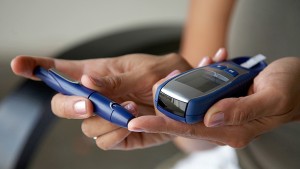New Survey Shows Americans Take Steps to Fend Off Colds and Flu
According to the Centers for Disease Control, common colds and flu are the main reason adults miss work. While a cold can be severe, the flu can be life threatening since more than 20 0,000 people are hospitalized each year for seasonal flu-related complications. In the midst of cold and flu season, Americans are taking action to avoid getting sick, according to the 2016 Healthy Hand Washing Survey conducted by Bradley Corporation.
0,000 people are hospitalized each year for seasonal flu-related complications. In the midst of cold and flu season, Americans are taking action to avoid getting sick, according to the 2016 Healthy Hand Washing Survey conducted by Bradley Corporation.
The Healthy Hand Washing Survey queried 1,062 American adults online about their hand washing habits in public restrooms and concerns about germs, colds and the flu. Participants were from around the country, were 18 years and older, and were fairly evenly split between men and women (47 and 53 percent).
“This time of year, we’re surrounded by family, friends and co-workers who are sick or may be getting sick. That’s why it’s so important to realize the first defense against illness is to remove germs and viruses from our hands by washing frequently and vigorously,” says Jon Dommisse, director of global marketing and strategic development at Bradley Corp.
The survey found that 71% of adults always make it a point to wash their hands after handling a sick child. Hand washing with soap is needed
when coming in contact with a sick individual in order to avoid the risk of contracting an illness yourself. The research has shown virus particles can
travel up to 12 feet through the air when someone coughs or sneezes. The study showed that human influenza viruses generally can survive on surfaces for two to eight hours.
“Flu viruses can be highly contagious and can be transferred to your hands by touching surfaces or things that have been contaminated,” says Dommisse. “When there’s an outbreak, it’s essential to step up your hand washing diligence.”
The survey specifically asked respondents about their hand washing behavior in public restrooms since germs from many different sources
can be found in those locations. The survey found that 40% of Americans don’t increase their hand washing during seasonal flu outbreaks.
A New Study On Fat-tissue Hormones Finds Possible Connection to Type 2 Diabetes
 A new study by researchers from Harvard T.H. Chan School of Public Health and colleagues describes the pre-clinical development of a therapeutic that could potentially be used to treat type 2 diabetes, fatty liver disease, and other metabolic diseases. The researchers developed an antibody that improves glucose regulation and reduces fatty liver in obese mice by targeting a hormone in (fat) tissue called aP2 (also known as FABP4).
A new study by researchers from Harvard T.H. Chan School of Public Health and colleagues describes the pre-clinical development of a therapeutic that could potentially be used to treat type 2 diabetes, fatty liver disease, and other metabolic diseases. The researchers developed an antibody that improves glucose regulation and reduces fatty liver in obese mice by targeting a hormone in (fat) tissue called aP2 (also known as FABP4).
“The importance of this study is; first, demonstrating the importance of aP2 as a critical hormone in abnormal glucose metabolism, and secondly, showing that aP2 can be effectively targeted to treat diabetes and potentially other immunometabolic diseases,” said Gökhan S. Hotamisligil, J.S. Simmons Professor of Genetics and Metabolism and chair of the Department of Genetics and Complex Diseases and the Sabri Ülker Center at Harvard Chan School.
The increase in adipose tissue characteristic of obesity has always been linked to metabolic diseases such as type 2 diabetes and cardiovascular disease. Recently, it has been discovered that the tissue itself plays an important role in metabolic disease, by releasing hormones which act in distant sites such as the liver, muscle, and brain that affect systemic metabolism. Work from the Hotamisligil lab previously identified the protein aP2 as a critical hormone mediating communication between adipose tissue and liver. Since aP2 levels are significantly increased in humans with obesity, diabetes, and atherosclerosis, and mutations that reduce aP2 result in significantly reduced risk of diabetes, dyslipidemia, and heart disease, strategies to modify aP2 function carry promise as new lines of therapeutic entities against these common and debilitating chronic diseases.
The work is the study is a collaboration on immunometabolism between the biopharmaceutical company UCB and a team of researchers led by Hotamisligil and lead author M. Furkan Burak, a former Hotamisligil lab member and currently a resident in internal medicine at Mount Auburn Hospital, Cambridge, MA. Coordinated by Harvard’s Office of Technology Development (OTD), the collaboration successfully twins UCB’s world-class expertise in monoclonal antibody discovery with Hotamisligil’s insight and experience in aP2 biology. In the new study, Burak and colleagues describe the development and evaluation of novel monoclonal antibodies targeting aP2. The team found that one of these antibodies effectively improved glucose regulation in two independent models of obesity. Additionally, beneficial reductions in liver fat were observed.
“These monoclonal antibodies have the potential to fight obesity-related metabolic and immunometabolic disease”, say the researchers. “This work is still at the preclinical stage and will require extensive evaluation for safety and effectiveness before being considered for use in humans.” and effectiveness before being considered for use in humans.
FDA Report – Inaccurate Unreliable Medical Tests Causing Harm
 In a report made to Congress last week, federal investigators with the FDA have concluded that “Patients have been demonstrably harmed or may have been harmed by tests that did not meet FDA requirements.”
In a report made to Congress last week, federal investigators with the FDA have concluded that “Patients have been demonstrably harmed or may have been harmed by tests that did not meet FDA requirements.”
The report found that tens of thousands of people were put on unnecessary drugs, received unnecessary surgeries, and underwent abortions that were not needed.
They also concluded that patients were treated for diseases they did not have, while others had life-threatening diseases that were not detected.
The Obama administration and Congress are seeking regulatory powers to set stricter standards for medical testing. If they succeed, it would result in the most momentous change since 1988 for laboratory testing.
The report focused on 20 case studies of tests used to diagnose Lyme disease, heart disease, autism and cancer.
The FDA found many serious problems in the use of tests and resulting harm to patients.
One test used to detect ovarian cancer was used even though it has never shown to be effective and false-positive results lead to “unnecessary surgery to remove healthy ovaries.”
Other tests that inaccurately reported abnormalities in fetuses resulted in abortions.
Tests that purport to detect genetic variants that increase heart disease risk, a connection that has never been proven, were given to over 150,000 people, who were then prescribed cholesterol lowering drugs that may not have been needed.
Dr. Jeffery E. Shuren, director of the Center for Devices and Radiological Health at the FDA said, “The problems are more prevalent than people want to recognize, doctors and patients rely on these tests to make well-informed health care decisions. If they get inaccurate results, they can make the wrong decisions, and people get hurt as a result.”
Dr. Shuren further commented that the number of people affected by these inaccuracies is not known, because there are no reports that are collected for “adverse events” related to laboratory tests.
Victoria Steiner, spokeswoman for Genomic Health of Redwood City, California, who produces one of the tests cited by the FDA, said that “a wealth of evidence has supported the use of our test to help guide chemotherapy treatment decisions in more than 500,000 breast cancer patients to date.”
Commercial test kits, sold to multiple labs are subject to review by the FDA before going to market, and the manufacturers must report to the government any deaths or injuries related to the product. But tests produced and used within a single laboratory are not subject to the same rules, even though they may receive samples from many doctors throughout the country.
Consumer groups and the Democratic Party are supporting the Obama administration in its efforts to bring enforcement over the single laboratory tests through new legislation.
“Patients and their physicians should be able to trust the results of their tests, regardless of how or where a test is developed or performed,” said Representative Frank Pallone Jr. of New Jersey, the senior Democrat on the House Energy and Commerce Committee. “It does not make sense to regulate tests differently based on who develops them.”
The Republican Party is split between those who are skeptical of legislation and others who are open to the idea of instating legislation over the single laboratories.
Representative John Shimkus, Republican of Illinois was quoted as saying “This is a tough area for conservative Republicans who think that government is too big and costs too much, the volume and complexity of these tests have grown exponentially,” and federal standards may be needed to ensure that the tests do what they are supposed to do.
Representative Michael C. Burgess, Republican of Texas who is also a physician, said that the proposed legislation “could stifle medical innovation and open the door to federal regulation of the practice of medicine.”
Jayson S. Slotnik, consultant to drug and device companies also pitched in “There will be more regulation, and it need not stunt innovation. The right regulation would separate good from bad tests and encourage use of the better ones.”